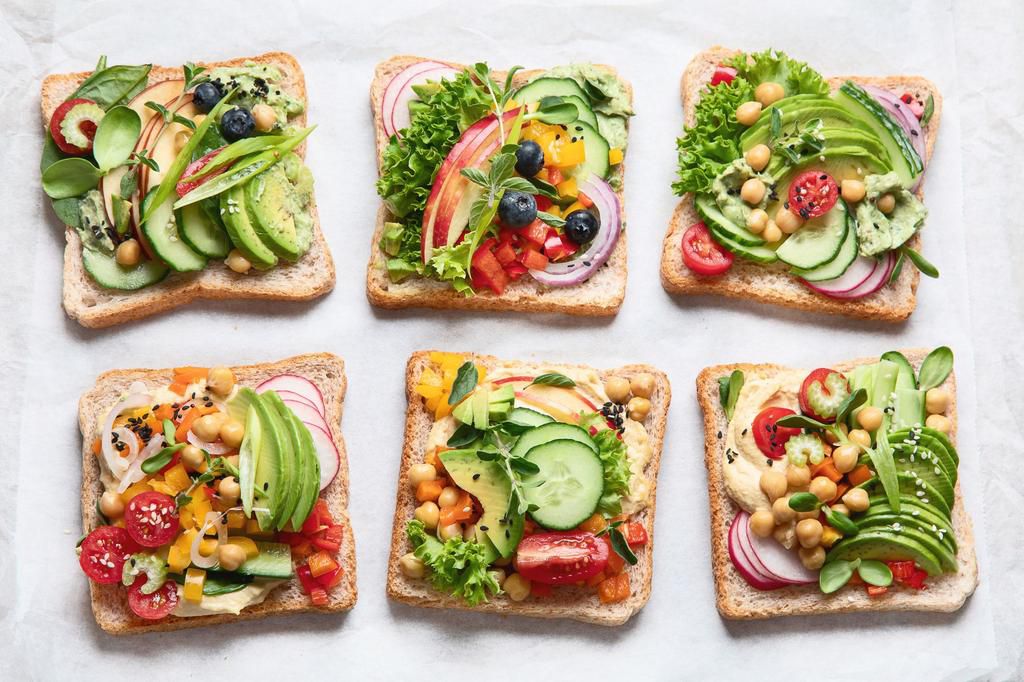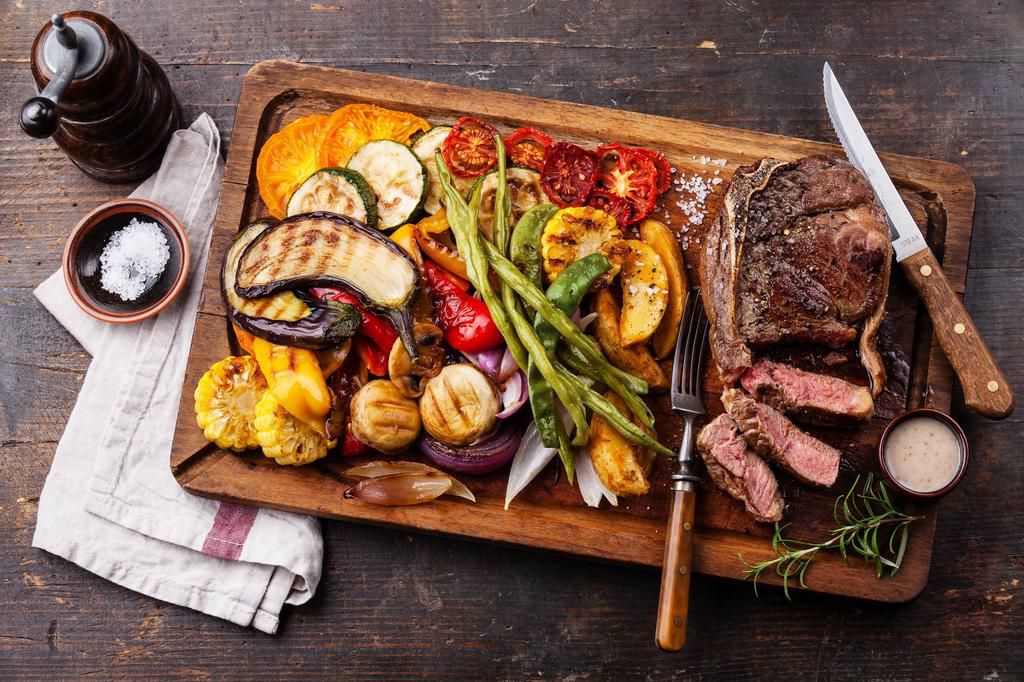We Asked 10 Experts What the Phrase 'Plant-Based Diet' Means and No One Could Agree
)
As if just now discovering vegetables, food manufacturers are cranking out plant-based products at a bumper crop rate. And consumers, apparently, are all for it.
Seventy-three people said theyve heard of a plant-based diet, according to a survey by the International Food Information Council Foundation . Fifty-one percent of those polled said that they would be interested in learning more about a plant-based diet.
But heres the thing: Even though consumers are familiar and interested in plant-based diets, they arent quite sure exactly what that means. From the same survey
- People who defined a plant-based diet as a vegan diet that avoids all animal products, including dairy and eggs: 32 percent .
- People who defined a plant-based diet as a diet that emphasizes minimally processed foods derived from plants and limits the consumption of animal products: 30 percent .
- People who defined a plant-based diet as a vegetarian diet: 20 percent .
- People who defined a plant-based diet as a diet that limits animal products and encourages eating as many fruits and vegetables as possible: 8 percent .
Neither the USDA nor the FDA currently have a definition for the term plant-based. Same goes for the medical and research community.

Unlike other diets, such as the ketogenic diet or Atkins, theres not even a rough estimate as to how many plants you should be eating versus how many animal products you should be eating.
Instead the term "plant-based" is similar to the word "natural," in that whoever (or whatever company) can use the term as they see fit, and not in accordance with a strict definition.
Heres how 10 experts within the world nutrition and plant-based eating had to say when asked this question: How would you define the phrase plant-based diet?
Abby Langer, R.D., founder of Abby Langer Nutrition
A lot of people think 'vegan' when they hear the phrase 'plant-based,' but that's not necessarily true. While it's a bit subjective, because there's no official definition for the term, I believe that 'plant-based' means a diet or food that is mostlybut not necessarily ALLbased on plants. So I think I eat a plant-based diet, but I still eat meat. I just eat more plants than pretty much anything else.
John Elefteriades, M.D., the William W.L. Glenn Professor of Cardiothoracic Surgery and former Chief of Cardiothoracic Surgery at Yale University and Yale New-Haven Hospital
A diet based only on plants, with no animal-based products.

Valerie Goldstein, R.D., founder of Eating to Fuel Health
Plant-based (includes fruits and vegetables, nuts, seeds, oils, whole grains, legumes, and beans) means choosing more of your foods from plant sources. It doesn't mean that you are vegetarian and never eat meat or dairy. But, you are proportionately selecting plants as the foundation of what you eat.
Camilla Fayed, founder of Farmacy Kitchen in NYC
After having experienced the powerful healing benefits of a plant-based diet, I was inspired to create Farmacya place for those passionate about taste, provenance, and living food recipes that are good for human health and sustainability. Farmacy champions the belief that food is medicine and supports local organic and biodynamic farming. We prepare our food in a way that respects everything between the soil and the sun, and our menu is entirely plant-based, which we define as free from any animal products, dairy, refined sugars, additives and chemicals. Plant-based eating, especially with organic and biodynamic ingredients, offers authentic connections to the earth that weve lost in modern times.
Jeffrey Blumberg, Ph.D., Research Professor at the Gerald J. and Dorothy R. Friedman School of Nutrition Science and Policy at Tufts University
A healthful plant-based diet is rich in unprocessed whole foods including fruits, legumes, nuts, seeds, vegetables, and whole grains. It does not mean a diet absent dairy, meat or seafood. It does mean choosing an array of plant foods that result in a diet high in complex carbohydrates, fiber, protein, and unsaturated fats. It is worth keeping in mind that many plant-based meat and dairy products as well as refined grains are highly processed foods that may contribute to agricultural sustainability but not necessarily to personal health.
Chris Mohr, Ph.D., R.D., co-founder of Mohr Results , a nutrition consulting company
Plant based diet to me means filling at least half of your plate at every meal with produce and grains. I don't feel plant based has to mean meat free; rather I see it as plant forward with several meals each week even being completely meatless. Plant based can also mean grains, of coursenot just produce.

Matthew Kenney, founder of Matthew Kenney Cuisine, and author of numerous plant-based cookbooks
To me, a plant-based diet is a tool that when used properly, can lead to an incredible quality of life not only for the individual but for the planet, as well. It is a way of eating that is not only devoid of animal products, but full of nutrient-dense fruits, vegetables, nuts, seeds, and grains. Having cooked many types of cuisine throughout my career, I find this to be the most interesting, challenging, and creative. Constant innovation is my natural state, so I suppose, it's fitting. Prediman Krishan Shah, M.D. Director of the Oppenheimer Atherosclerosis Research Center at Cedars-Sinai
Plant based foods include vegetables, fruits, whole grains, legumes, nuts, and seeds. Brian St. Pierre, C.S.C.S., R.D., Director of Nutrition at Precision Nutrition
It's actually an interesting question, because it can seemingly have several meanings, depending on who you ask. Some people use it to mean what we would traditionally call a vegan dietplants only, no animal products whatsoever. Though often without the overarching philosophy of veganism, which extends to no animal products in their lives altogether (so no leather, fur, wool, silk, honey, etc.).
Others mean more of a plant-focused or plant-forward diet, where there is a significant emphasis on minimally-processed plant foods, but animal foods can be allowed in small amounts. The Mediterranean diet would be an example of this. Where plants are its main focus, but it also includes things like fish, poultry, eggs, cheese, and yogurt in moderate amounts.
Regardless, the term plant-based usually encourages lots of whole, minimally-processed plant foods, such as vegetables, fruits, whole grains, beans, and legumes, as well as nuts and seeds. Torre Washington, vegan professional body builder
I would define the phrase plant-based diet as something that is used to better explain an individual who consumes mainly nutrition from plant bearing foods and only at a time where they are looking for a change within their body, with the catch being once the change has occurred they may convert back to their old ways of nutrition. Due to the idea that it is a DIET and has been shown to be temporary. The research also shows that diets are hard to maintain unless it becomes a lifestyle. D-I-E-T : Dont die yet, live a lifestyle!

)
)
)
)
)
)